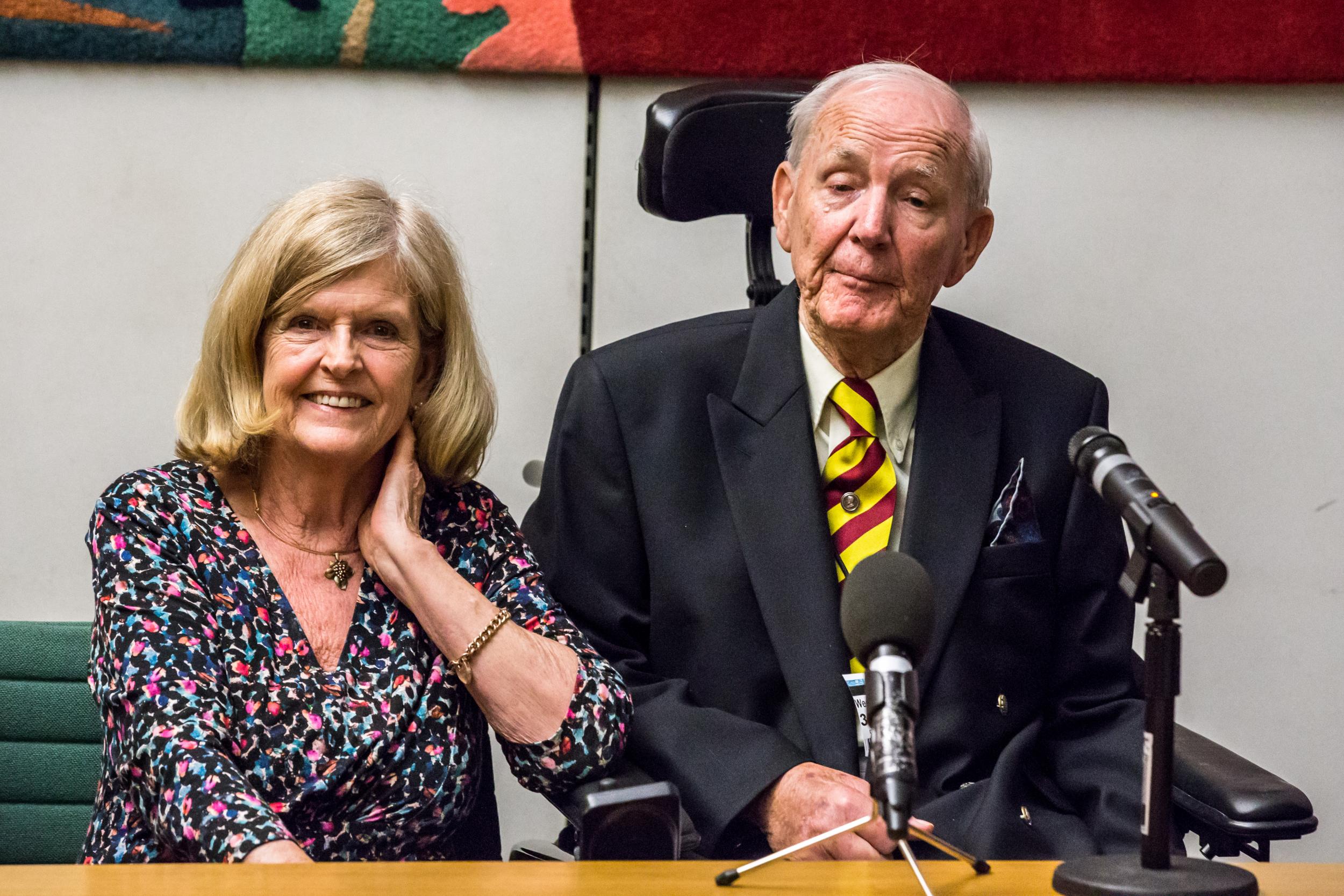Terminally ill man denounces assisted dying law after police interview wife over his plan to die at Dignitas
'The law in this country robbed me of control over my death', Geoffrey Whaley tells MPs in letter published as he ends life in Swiss clinc

Your support helps us to tell the story
From reproductive rights to climate change to Big Tech, The Independent is on the ground when the story is developing. Whether it's investigating the financials of Elon Musk's pro-Trump PAC or producing our latest documentary, 'The A Word', which shines a light on the American women fighting for reproductive rights, we know how important it is to parse out the facts from the messaging.
At such a critical moment in US history, we need reporters on the ground. Your donation allows us to keep sending journalists to speak to both sides of the story.
The Independent is trusted by Americans across the entire political spectrum. And unlike many other quality news outlets, we choose not to lock Americans out of our reporting and analysis with paywalls. We believe quality journalism should be available to everyone, paid for by those who can afford it.
Your support makes all the difference.A terminally ill man whose wife was interviewed by police over his planned death at a Swiss clinic has called for urgent changes to the UK’s assisted dying laws.
In an open letter to MPs published minutes before he ended his life at Dignitas, accountant Geoffrey Whaley said his final months had been “blighted” by visits from social services and a criminal investigation.
The 80-year-old, from Chalfont St Peter in Buckinghamshire, arranged to die at a clinic near Zurich after he was diagnosed with motor neurone disease in 2016.
His wife Ann, 76, supported his wish to avoid a protracted death but faced the threat of prosecution after an anonymous tip-off to Thames Valley Police.
“As I was saying my final goodbyes and preparing myself for the end, the final, biggest bomb dropped and I could no longer keep it together," Mr Whaley said. "Within hours Ann and I were facing a criminal investigation. The thought that I might not make it to Switzerland, or that, if I did, Ann might be facing 14 years in jail for helping me, was almost too much to bear.”
Mr Whaley had booked into the Dignitas clinic himself but asked his wife to arrange flights and a hotel in Switzerland after losing the use of his arms in the final weeks of his life.
Police interviewed Ms Whaley under caution twice before informing her she would face no further action.
In his letter, Mr Whaley told MPs: “I want to impress upon you the anguish me and my family have experienced, not because of this awful illness, but because of the law against assisted dying in this country. The law in this country robbed me of control over my death. It forced me to seek solace in Switzerland. Then it sought to punish those attempting to help me get there. The hypocrisy and cruelty of this is astounding.”

Mr Whaley ended his life at 10am on Thursday. He was surrounded by his wife, his children Alix and Dominic, and close friends.
Speaking before the family travelled to Switzerland, Ms Whaley said: “Geoff and I have been very happily married for 52 years. I have never seen him cry. The day the police called, he sobbed. In my eyes, I am not a lawbreaker; I simply love my husband.”
At least three Britons have faced a criminal investigation after returning home from a loved one’s assisted death overseas, although none have been prosecuted.
More than 170 people have travelled from Britain to die at the Dignitas clinic in Switzerland in the last five years.
The process costs an average of £10,000, according to Dignity in Dying, which campaigns for changes to the UK’s assisted dying law
Sarah Wootton, the organisation's chief executive said: “Banning the practice in this country does not make it go away; it simply outsources death overseas, at huge financial, practical and emotional cost to the families involved.”
British MPs last voted on assisted dying in 2015, when they rejected proposals to allow some terminally patients end their lives with medical supervision by 330 votes to 118.
Opponents of assisted suicide argue it would be open to exploitation and patients could be coerced into ending their lives prematurely, but supporters of law change say inbuilt safeguards could protect the vulnerable.
Seventy-nine per cent of the British public believe assisted dying should be legalised, according to a YouGov poll published this week.
Join our commenting forum
Join thought-provoking conversations, follow other Independent readers and see their replies
Comments